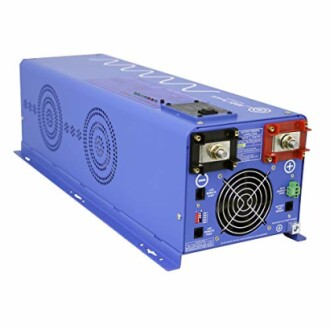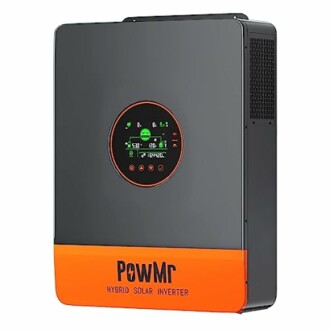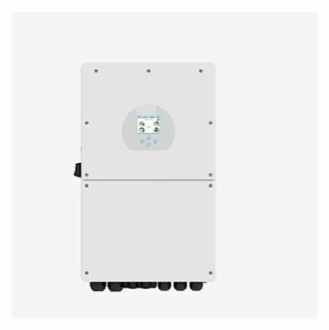
Choosing the Right Hybrid Inverter for Your Home
Key Takeaways
- Understand the types of hybrid inverters available.
- Compatibility with your existing solar panel system is crucial.
- Key features include battery management, power ratings, and safety protections.
- Explore top products like AIMS Power, PowMr, and PULME inverters.
- Evaluate your specific energy needs and future expandability.
Selecting the right hybrid inverter for your home can seem overwhelming at first. Hybrid inverters play a significant role in maximizing your solar energy usage and ensuring that you have reliable power at all times. In this guide, we will break down the important considerations to help you make an informed choice for your solar setup.
Understanding Hybrid Inverters
A hybrid inverter combines the functions of a conventional solar inverter with a battery charger and an energy management system. This provides flexibility in how you manage and consume energy. Here’s a summary of the key functions:
- Convert solar energy into usable electricity.
- Charge batteries using solar or mains power.
- Provide seamless power to your home during grid outages.
Types of Hybrid Inverters
Hybrid inverters can be classified into several types based on their features and applications:
| Type | Description |
|---|---|
| Grid-Tied Hybrid Inverters | These inverters connect to both your solar panels and the utility grid, allowing for energy flow both ways. |
| Off-Grid Hybrid Inverters | These are designed for complete independence from the utility grid, perfect for remote locations. |
| Battery-Based Hybrid Inverters | These inverters can store energy in batteries for use during periods of low solar generation or peak demand. |
Key Features to Consider
When choosing a hybrid inverter, it's essential to evaluate its features. Here are some factors to keep in mind:
- Power Rating: Ensure the inverter can handle your household's total energy needs.
- Battery Compatibility: Check if it supports the battery types you intend to use.
- Charging Modes: Look for inverters that offer flexible charging modes to optimize energy usage.
- Safety Protections: Features such as overload and short circuit protection are vital.
Top Hybrid Inverter Recommendations
Based on thorough research and popular options available currently, here are three great hybrid inverters to consider:
AIMS Power 6000 Watt Pure Sine Inverter Charger
This inverter provides 6000W continuous output and can handle 18000W surge, ideal for home, office, or cabin use.
See ProductPowMr 5000W Hybrid Solar Inverter
This inverter offers multiple output phases and supports a variety of battery types, making it suitable for photovoltaic systems.
Explore NowPULME 16kw Hybrid Inverter
Perfect for home or office, offering multiple protection functions and easy adaptability to various energy sources.
More DetailsCompatibility Considerations
Before purchasing an inverter, make sure it is compatible with your solar system. Consider the following:
- Check the voltage and power ratings of your solar panels.
- Ensure your inverter supports the specific battery types you have chosen.
- Evaluate if it can handle your expected load and provide additional capacity for future upgrades.
Installation and Maintenance
Proper installation and care can enhance the inverter's lifespan and efficiency:
- Hire a professional for installation to ensure all safety measures are followed.
- Regularly inspect and maintain your inverter, especially its connections and cooling systems.
- Stay updated on firmware updates from the manufacturer for enhanced performance.
Conclusion
Whether you're looking for a reliable energy source for your home, considering an upgrade, or starting fresh, finding the right hybrid inverter is crucial. By evaluating the features and considering your energy needs, you can make the right choice and enjoy the benefits of solar independence.
Beginner Tips
- Start with calculating your total energy consumption to determine the inverter capacity you need.
- Research different brands and models to find the best fit for your requirements.
- Make use of online resources and guides, such as our Hybrid Solar Systems for deeper understanding.
Pros
- Efficient energy management for off-grid and hybrid systems.
- Multiple charging options for enhanced flexibility.
- Compatibility with various energy sources.
Cons
- Initial costs can be higher compared to standard inverters.
- Requires careful integration with existing systems.






